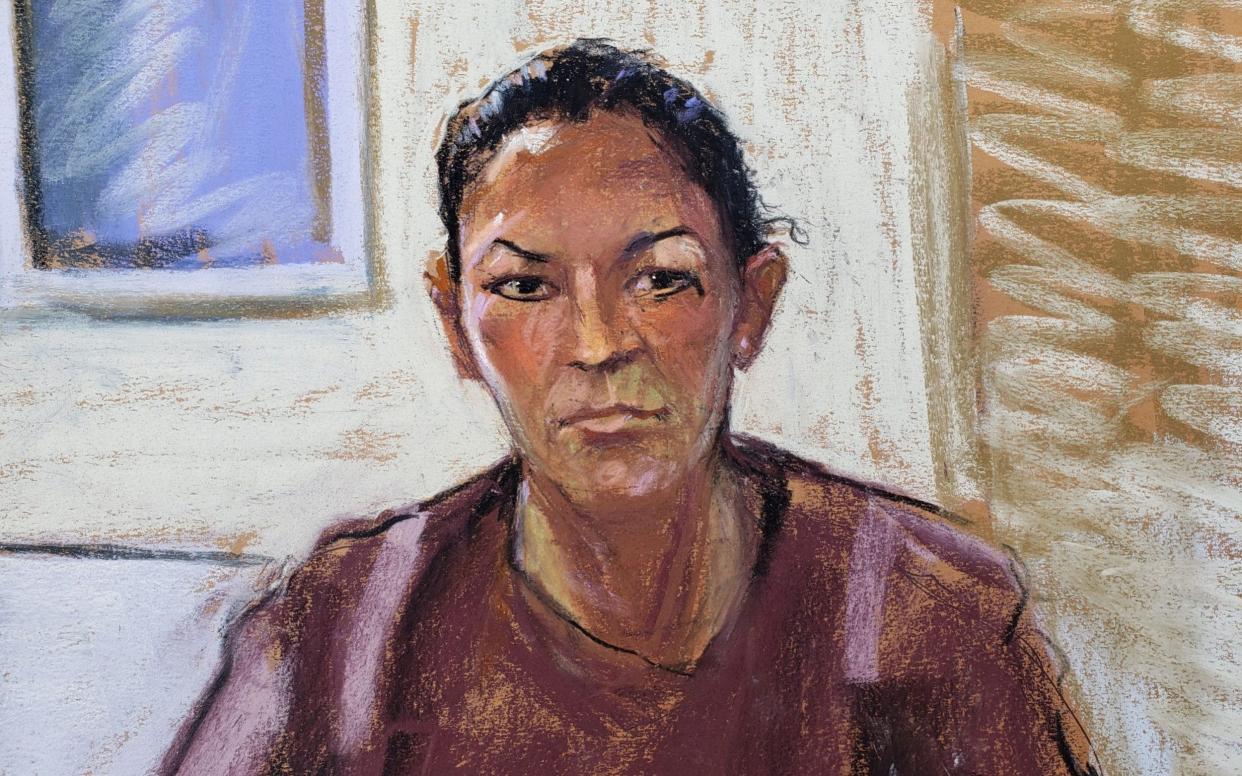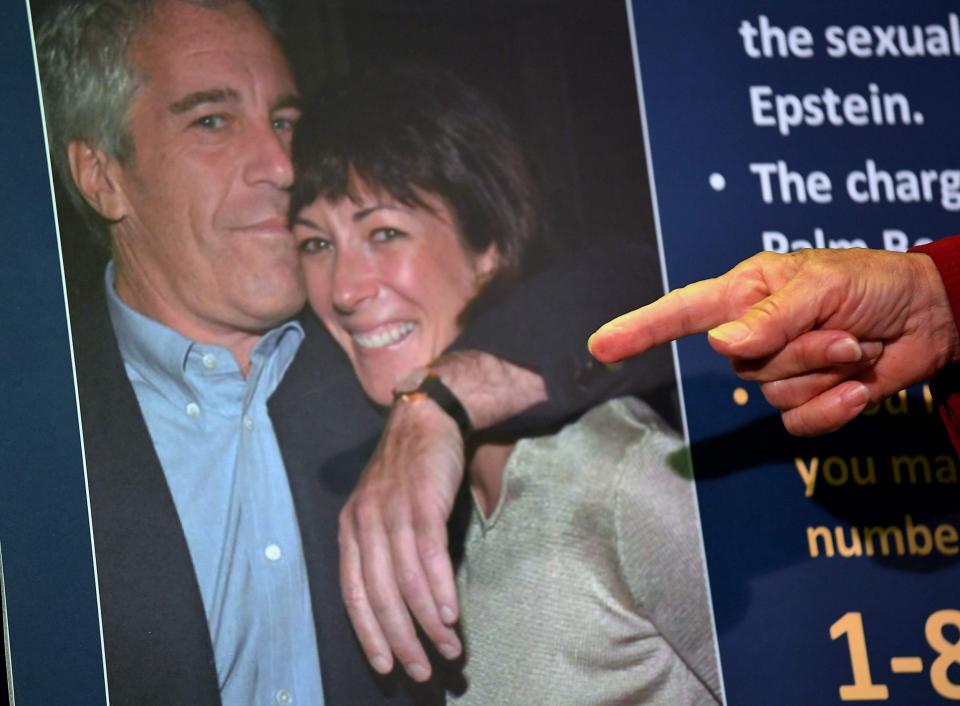Ghislaine Maxwell 'may be a victim too', judge suggests

A judge weighing whether to unseal sworn testimony given by Ghislaine Maxwell, a longtime associate of the late disgraced financier Jeffrey Epstein, has suggested that the socialite “may be a victim as well.”
The British heiress is urging a panel of judges in a federal appeals court in New York to overturn a lower court decision ruling to make public the documents, which Maxwell claims will jeopardise her ability to defend against criminal charges she enabled Epstein's sexual abuse of girls.
Ms Maxwell, 58, who is currently in a Brooklyn prison awaiting trial, has pleaded not guilty to charges she helped the billionaire recruit and groom underage girls as young as 14 years old to engage in illegal sexual acts in the mid-1990s.
The evidence in question relates to a deposition she gave in 2016 in a civil case brought by Epstein victim Virginia Roberts Giuffre, who says the late billionaire forced her to have sex with Prince Andrew, and others, when she was 17. The Duke of York denies all allegations.

Prosecutors at the Southern District of New York allege the heiress committed perjury during her testimony by claiming she had no knowledge of the abuse, charges she denies.
The depositions are Ms Maxwell’s only on-the-record account of her association with Epstein and his sex-trafficking ring. Her lawyers argue it was given under an expectation of confidentiality that had been agreed to by both sides in the dispute.
Parts of it were unsealed by a judge last year and another tranche was made public in July.
David Boies, attorney for Ms Giuffre, argued in court on Tuesday that it was "unfair" that only selective portions of the documents had been unsealed.
"People reading it don't have the entire context," he said, arguing that the reputation of Ms Giuffre, who sued Maxwell for defamation after she claimed she was lying about her abuse, was at stake. "It will prejudice our client if the public is given a misleading view," he added.
Judge Rosemary Pooler, praising reporting by the Miami Herald that led to Maxwell's arrest, said that it "led to some important work in the protection of young female victims but Miss Maxwell may be a victim as well, isn't that true?"
She questioned why the remainder of the evidence needed to be made public if Ms Giuffre’s lawsuit had already been settled, particularly as she had upcoming criminal trial.
Christine Walz, a lawyer for the newspaper, which is an intervener in the case, said she disagreed with the characterisation, but added it was irrelevant to whether the documents should be released.
Transcripts were designated “confidential” and subject to a protective order, however, they came to be in the hands of the US government.
Maxwell’s lawyers have tried to claim that the trove of documents - which could expose fresh details about her sex life as well as her relation to powerful figures accused of taking part in the abuse of the late billionaire's victims - would result in “substantial negative media publicity and speculation in an internet world."
The Second US Circuit Court of Appeals will decide either to confirm their unsealing or reject the ruling by US District Judge Loretta Preska.

“The documents at issue have been improperly sealed for years - in a way that allowed Mr Epstein, Ms Maxwell, and others’ abuse of young girls to go on unchallenged and unpunished, and allowed a legal system that protected perpetrators over victims to go unquestioned,” attorney Christine Walz wrote in the legal brief opposing the appeal.
Ms Giuffre is one of Epstein's most visible public accusers, and believes the public has a right to see Maxwell's deposition, which came from Ms Giuffre's civil defamation lawsuit against her.
Tuesday's hearing will also address a second Maxwell appeal, from criminal Judge Alison Nathan’s refusal to modify a protective order and let her access confidential materials produced by the government.
Maxwell's lawyers hope to use those materials to convince Judge Preska not to unseal the deposition, saying the judge deserved to know "just how prosecutors obtained the deposition material and who turned it over to them."
Prosecutors countered that Maxwell has shown no need for the materials, and that her appeal was a "thinly veiled attempt" to have the appeals court declare they gathered evidence illegally.

 Yahoo News
Yahoo News 
